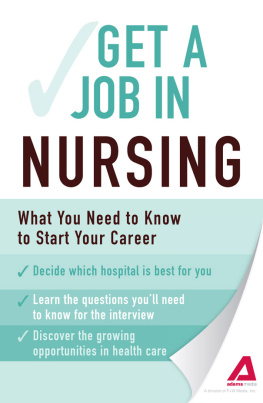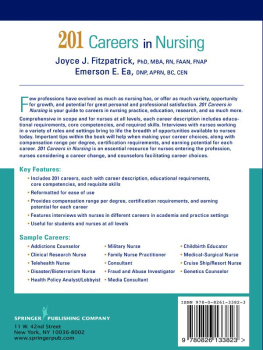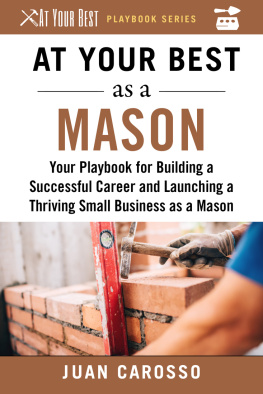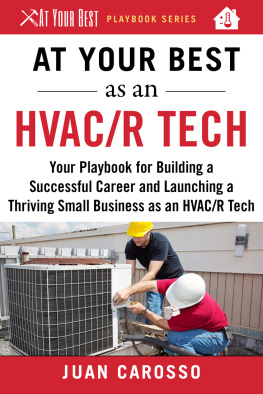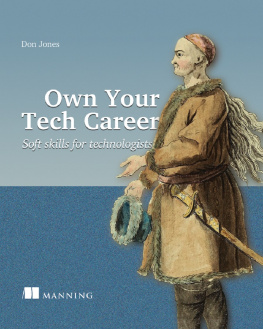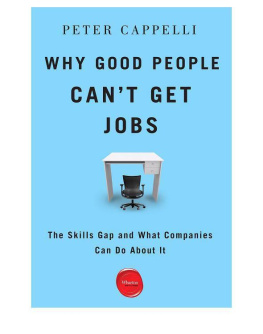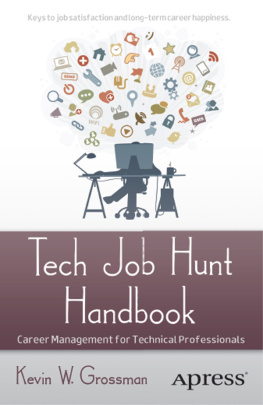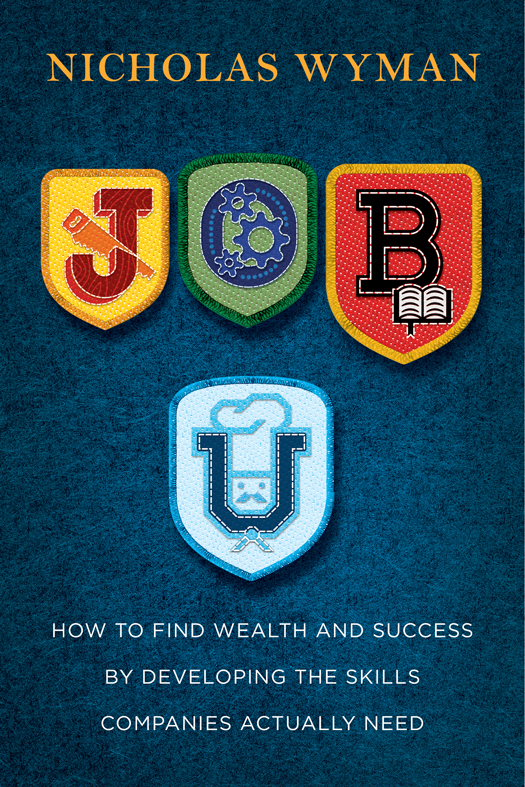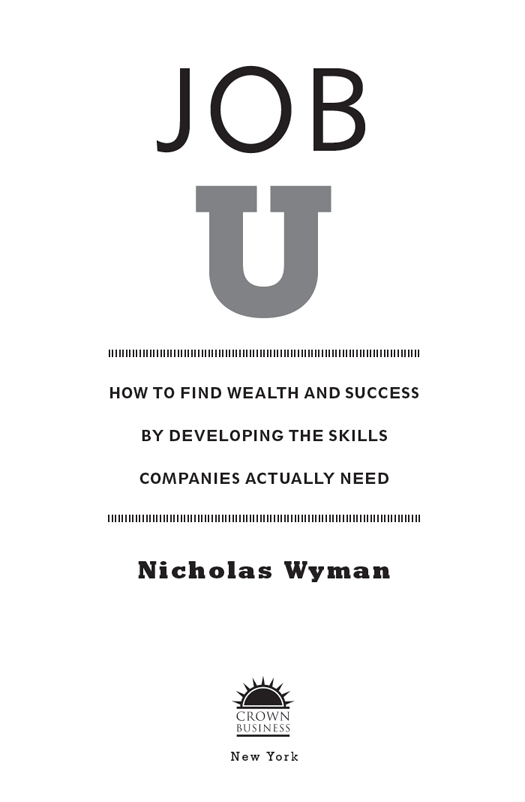
To inquire about booking this author for a speaking engagement, please contact the Penguin Random House Speakers Bureau at .
Copyright 2015 by Nicholas Wyman
All rights reserved.
Published in the United States by Crown Business, an imprint of the Crown Publishing Group, a division of Random House LLC, a Penguin Random House Company, New York.
www.crownpublishing.com
CROWN BUSINESS is a trademark and CROWN and the Rising Sun colophon are registered trademarks of Random House LLC.
Library of Congress Cataloging-in-Publication Data is available upon request.
ISBN 978-0-8041-4078-2
eBook ISBN 978-0-8041-4079-9
Cover design by Jess Morphew
Cover illustration: Andrew Gibbs
Cover background photograph: Grzym/Shutterstock
Author photograph: DouglasGorenstein.com
v3.1_r1
Contents
Prologue
This book aims to change the entire conversation about what the right path to a rewarding and prosperous career can look like: the conversation going on at company headquarters, in college admissions offices, and around kitchen tables across the nation. It will shatter the false dogma that college is the bestor onlypath for every ambitious young person, and it will provide the spark for a jobs revolution by offering a new and different way of looking at the path to a fulfilling and successful work life.
Whether you are right out of high school, a recent college graduate, or well along in your career journey, youll discover affordable and accessible pathways to a respected, rewarding, and well-paid career. Indeed, by the time you finish this book, you will have a whole new outlook and road map for how to find the best way to add valueand be valuedin todays job market.
The fact is, it doesnt matter how young or old you are, what field you work in or aspire to work in, or what your background looks like. Today we are all facing the reality that unemployment and underemployment are at record highsacross all regions of the country, across all industries, and across all income and educational levels. Yet, at the same time, millions of jobs are being left vacantor, worse, being sent overseas because there are not enough U.S. workers with the skills to do them or do them well.
Here are the hard facts. Today around thirteen million Americans, some with college degrees, are unemployed, and that does not include those who are underemployed or have given up trying to find work. Yet three million positions remain unfilled, and a quarter of American businesses say they have trouble finding people with the practical, technical, job-ready skills they need. In the manufacturing industry, a sector that has long been the lynchpin of our economy, its even worse. Companies report six hundred thousand unfilled manufacturing jobs. Thus, companies are struggling to find enough skilled people to justify moving jobs back to America.
In short, there are millions of willing people waiting on the sidelines, yet not enough of them have the practical skills required to keep companies staffed and the economy humming. One reason for this supply-demand imbalanceknown as the job-skills, or middle-skills, gapis simply that too many job seekers, including many of todays college graduates, are finishing their educations without practical work experience or the soft skills needed to land a job: the skills to be part of and work on a team and navigate the day-to-day rigors of a modern workplace. For reasons outlined in the coming chapters, today many young people are graduating from college with a solid footing in liberal arts subjectssuch as art history and sociology and literaturebut little to no exposure to or training in the technical and practical skills that so many of todays jobs and companies actually require. This skills gap has major ramifications not only for individual job seekers and companies but for the economy at largeparticularly as more baby boomers retire, more knowledge jobs become automated, and more manufacturing work returns to the United States from overseas.
The good news is that the same middle-skills gap that frustrates thousands of employers represents an opportunity for every person who is deciding what to do with the rest of his or her life, and for every college grad who cannot find a good-paying job. It represents opportunity for every seasoned worker whose livelihood is threatened by automation and outsourcing; for every midlife career changer or laid-off worker for whom a new job will necessarily require new skills; for every man or woman looking to rejoin the workforce after a lengthy absence or maternity leave; for all the parents who cant afford to spend hundreds of thousands of dollars on their kids education, and for every parent who can pay those bills but asks, Is this the best investment I can make in my childs future? And it represents opportunity for every executive, manager, or other professional who has reached a point in life where they crave satisfaction through tangible, hands-on work; for anyone at any stage in their career seeking what Matthew Crawford describes in Shop Class as Soulcraft as
But the doors to these opportunities cant be found at traditional elite colleges. Nor can they be found at any of the hundreds of second- or third-tier colleges or universitiesschools that carry similar high price tags but dont confer the same prestige and connections on their graduates when they enter the job market.
In fact, the paths to these opportunities can be found only outside traditional four-year universities, in the burgeoning opportunities of skills-based education, such as those found through vocational training courses, technical schools, community colleges, apprenticeship programs, and more. In other words, in the educational pathways that equip smart, ambitious students with the job-ready skills that companies actually need.
Please note that Im not talking here about pathways to minimum-wage, dead-end, or revolving-door jobs that no one wants to do. Im talking about the skills-based learning opportunities that lead to well-paying, respectable careers as electricians, master chefs, cardiovascular technologists, machinists, aircraft mechanics, auto technicians, dental hygienists, welders, mechatronics engineers, and air ambulance paramedics, to name just a few. When I talk about people with skills-based careers, Im not talking about low-paid, old style factory workers; Im talking about the highly skilled and well-compensated technicians repairing the engines at Boeing that enable millions of passengers to fly each day, or building the complex gas turbine generators for Siemens that power communities around the world, or installing the cutting-edge robotic assembly machines at Volkswagenone of the largest automotive manufacturers in the world. Im talking about the entrepreneurs who run their own photography studios, the artisans who fill their days handcrafting high-end furniture, and the apprentice chefs preparing meals at your favorite neighborhood bars and restaurants. Im talking about the people who build our homes and bridges, monitor our health, care for our sick and diseased, and keep our complex IT networks running; the people who keep our new world of advanced manufacturing humming by programming and operating our computer-controlled tools and robots; the people we need and call (and pay a hefty sum to) when our pipes spring a leak or our furnaces go kaput on a frosty winter night. These are the men and women who form the backbone of our economy and society. And almost all of them learned their skills through high school vocational education, two-year associate degree programs, traineeships or apprenticeships, formal and informal company-based training, or one of the other alternatives to traditional college youll read about in this book. Contrary to popular belief, a surprising percentage of them earn more than their peers who spent four years and tens of thousands of dollars earning baccalaureate degreesa fact lost on too many parents and guidance counselors who think that the traditional college/university track is the best or only pathway to building a prosperous career.



